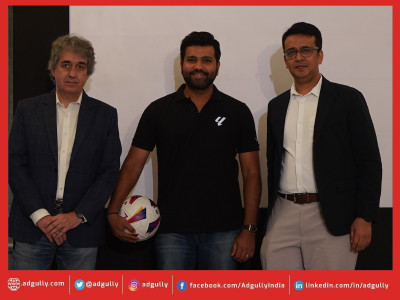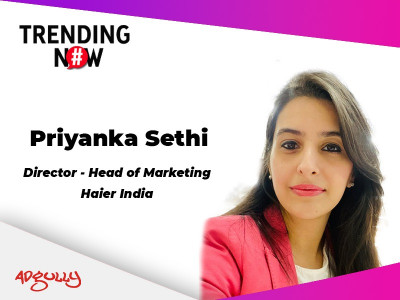Not every battle is yours to pick - Know which ones to pick & which to drop: Aakriti Vohra
We, at Adgully, have always saluted and honoured women managers and leaders across diverse fields. W-SUITE is a special initiative from Adgully that has been turning the spotlight on some of the most remarkable women achievers in M&E, Advertising, Marketing, PR and Communications industry. In the refurbished series, we seek to find out how women leaders have been managing their teams and work as well as how they have been navigating through the toughest and most challenging times brought about by the global pandemic.
In conversation with Adgully, Aakriti Vohra, India Delegate, LaLiga Global Network, speaks about the growing presence of women in the sports industry, lessons learned from the pandemic, crisis management, gender sensitivity and more.
ALSO READ: I believe leadership is an action rather than a position: Dr Smita Pankaj Naram
How do you think the role and scope of women leaders has widened in the current market ecosystem?
I can specifically address this from the perspective of the sports industry, since that is where I have spent my entire professional career. Although it has inherently been a male dominated industry, I do see a shift in the way women are being included and considered for value driven strategic roles. I’m proud to say that LaLiga is among the frontrunners in this regard, with about 38% of the workforce being women, and with many in the management committees as well. While several other industries have probably already recognised the issue and made corrections, this is a very welcome change for the sports industry. I am hopeful the industry can take it a notch higher in the years to come and we will see even higher participation and inclusion of women as decision-makers.
What has been your major learning in the pandemic period?
Overall, the pandemic taught me to take it one day at a time, not stress too much over the future, and also instilled in me the importance of valuing the little things in life more than I did in the past. We often tend to ignore or devalue what we have in the present moment in the race to pursue greater heights. I have learnt to balance and mix appreciation for the things I have today along with ambitions for the things I’d like to achieve in the future. Work from home has also helped with immense flexibility and the independence of achieving nearly anything from anywhere, remotely. Though I see tremendous merit still in in-person meetings and some of the old ways of functionality, I am amazed by the possibilities the advancements in technology have opened up. Like at the LaLiga India Office, we leveraged newer platforms to maintain and increase engagement with our fans and stakeholders here through various activations.
What is your mantra for maintaining a successful work life balance in the new normal? According to you, what makes women the best in crisis management?
Mental health awareness has gained tremendous traction (which was much needed, in my opinion!) over the last couple of years and the importance of maintaining good mental and physical health has become ingrained. Retaining a healthy work-life balance can be a great way to achieve this equilibrium. With more flexibility and the work-from-home model, it helps us achieve a good mix of this.
I truly believe in a general statistic that women overall do have a higher sense of compassion, empathy and patience. These qualities can go a long way in helping women be better at crisis management. Good listening skills and solid communication have also helped me significantly in managing crises in multiple situations.
What are the five most effective leadership lessons that you have learned?
- Be a Good Listener
- Not every battle is yours to pick - Know which ones to pick and which to drop
- Keep your learning mindset & openness to ideas alive
- Don’t micromanage: you can’t do it all! Learn to delegate and trust your team
- At times, discipline and consistency can beat talent
Gender sensitivity and inclusion in the new normal – how can organisations effectively encourage and groom women leaders in challenging times?
Organisations can start by including and encouraging women to take the lead on decision-making. The unsaid differentiation or rather evident differentiation of reducing the importance of women in an organisation when they are closer to bigger life decisions like marriage and pregnancy needs to be addressed and eliminated. Gender equality is key in these times and I won’t deny that changes have come in the last decade or so, but a lot needs to still change. I hope I am lucky enough to see a drastic change in this scenario during my professional career.
















Share
Facebook
YouTube
Tweet
Twitter
LinkedIn